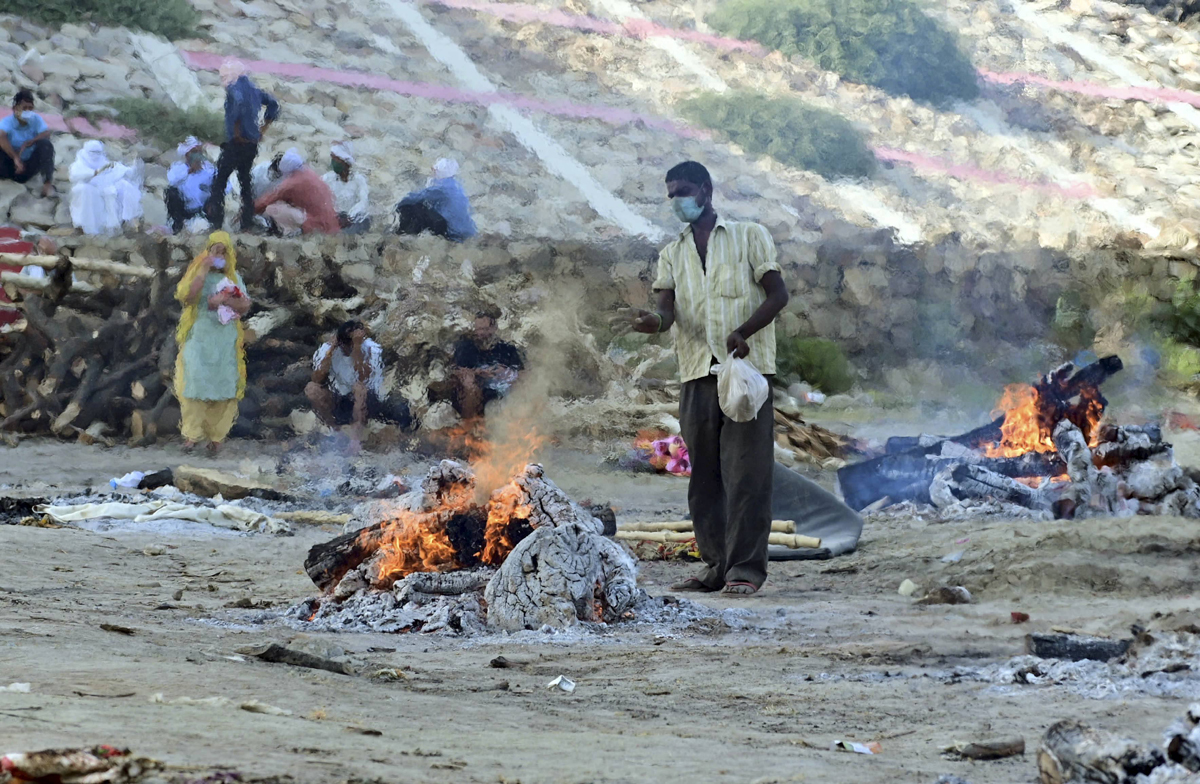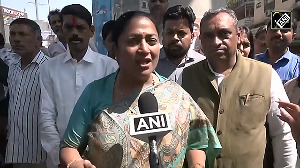India on Thursday strongly objected to the use of mathematical models by the World Health Organization for projecting excess mortality estimates linked to the coronavirus pandemic in view of the availability of authentic data, saying validity and robustness of the models used and methodology of data collection are questionable.

In a report released on Thursday, the WHO estimated that nearly 15 million people were killed either by the coronavirus or by its impact on overwhelmed health systems in the past two years, more than double the official death toll of 6 million. Most of the fatalities were in Southeast Asia, Europe and the Americas.
According to the report, there were 4.7 million Covid deaths in India -- 10 times the official figures and almost a third of Covid deaths globally.
India likely to raise the issue at the World Health Assembly and required multilateral forums, sources said.
India has been consistently objecting to the methodology adopted by the WHO to project excess mortality estimates based on mathematical models, the Union Health Ministry said in a statement.
"Despite India's objection to the process, methodology and outcome of this modelling exercise, the WHO has released the excess mortality estimates without adequately addressing India's concerns," the statement said.
India had also informed the WHO that in view of the availability of authentic data published through Civil Registration System by the Registrar General of India, mathematical models should not be used for projecting excess mortality numbers for India.
Registration of births and deaths in India is extremely robust and is governed by decades old statutory legal framework, i.e. “Births & Deaths Registration Act, 1969”. The civil registration data as well as sample registration data released annually by the RGI has been used by a large number of researchers, policy makers and scientists both domestically and globally, the ministry said.
The RGI is over a century old statutory organisation and is assisted by chief registrars of states and union territories and about three lakh registrars and sub-registrars across the country.
Based on reports submitted by states and UTs, national reports are published annually by the RGI. The national report for the year 2019 was published in June 2021 and for the year 2020 on May 3, 2022. These reports are in public domain.
"India firmly believes that such robust and accurate data generated through Legal Framework of a Member State must be respected, accepted and used by WHO rather than relying on less than accurate mathematical projection based on non-official sources of data," the statement stated.
India had pointed out the inconsistencies in the criteria and assumption used by the WHO to classify countries into Tier I and II as well as questioned the very basis for placing India into Tier II countries, for which a mathematical modelling estimate is used.
India had also underlined the fact that given the accuracy of the mortality data collected through an effective and robust statutory system, India doesn't deserve to be placed in Tier II countries, the statement said.
"The WHO till date has not responded to India's contention. India has consistently questioned WHO's own admission that data in respect of seventeen Indian states was obtained from some websites and media reports and was used in their mathematical model. This reflects a statistically unsound and scientifically questionable methodology of data collection for making excess mortality projections in case of India," the statement said.
Throughout the process of dialogue, engagement and communication with WHO, it has projected different excess mortality figures for India citing multiple models, which itself raises questions on the validity and robustness of the models used.
India objected to the use of Global Health Estimates 2019 in one of the models used by WHO for calculating excess mortality estimates for India. GHE itself is an estimate.
"Therefore, a modeling approach which provides mortality estimates on the basis of another estimate, while totally disregarding the actual data available within the country, exhibits lack of academic rigour," the statement said.
The test positivity rate -- another key variable used by the WHO -- for COVID-19 in India was never uniform throughout the country at any point of time.
Such a modeling approach fails to take into account the variability in Covid positivity rate both in terms of space and time within the country. The model also fails to take into account the rate of testing and impact of different diagnostic methods (RAT/RT-PCR) used in different geographies, the statement stated.
Owing to its large area, diversity and a population of 1.3 billion which witnessed variable severity of the pandemic both across space and time, India consistently objected to the use of “one size fits all” approach and model, which may be applicable to smaller countries but cannot be applicable to India, it said.
In spite of these differences, India continued to collaborate and coordinate with WHO on this exercise and multiple formal communications -- 10 times from November 2021 to May 2022 -- as well as numerous virtual interactions were held with the global body.
"Despite communicating this data to WHO for supporting their publication, WHO for reasons best known to them conveniently chose to ignore the available data submitted by India and published the excess mortality estimates for which the methodology, source of data, and the outcomes has been consistently questioned by India," the statement said.











 © 2025
© 2025